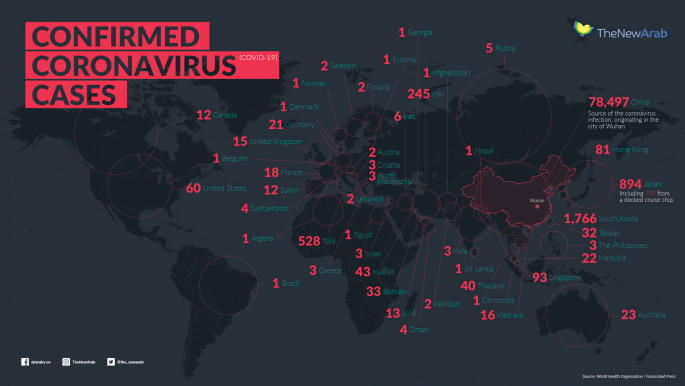Iranian vice-president, former US hostage spokesperson struck by coronavirus
Iran's Vice-President Masoumeh Ebtekar, who rose to global prominence in 1979 as the spokesperson for the hostage-takers who capture the US embassy in Tehran, has tested positive for the coronavirus, Iranian state media reported on Thursday.
Iran announced on Thursday that 26 people have died as a result of the coronavirus.
Iran's Health Ministry spokesman Kianoush Jahanpour told a press briefing that 106 more cases of the disease had been confirmed over the past 24 hours, raising the tally of infections to 245, the highest outside China where COVID-19 originated.
The additional cases made up the highest number for a single day since Iran announced its first cases on February 19.
Masoumeh Ebtekar, who was born in 1960, was selected by the “Muslim Students of the Imam Khomeini Line" as their spokeswoman after their seizure of the US Embassy in Tehran because of her flawless English.
|
|
Identified only with the codename "Sister Mary", she made appearances on US and British television justifying the seizure of the embassy and saying that she was prepared to kill American hostages because she had "seen an American gun being lifted up and killing my brothers and sisters in the streets". This was in a reference to American military and security support for the Shah of Iran’s regime.
Comment: Iran's mishandling of coronavirus Covid-19 outbreak is putting its people at risk
Fifty-two Americans were held hostage in the US embassy for 444 days in an event that caused a global outcry.
Ebtekar left a negative impression on American audiences because even though she had been educated in the US she was deeply hostile to Washington.
After the hostage crisis, she became editor-in-chief of Iran's English-language Kayhan International newspaper.
Ebtekar later became associated with Iran's moderates and is seen to be on the left of Iran's political spectrum.
She served her first term as vice-president of Iran under reformist President Mohammad Khatami from 1997 to 2005 and was re-appointed to the vice-presidency under current President Hassan Rouhani in 2013.
Ebtekar is not the first senior Iranian official to be struck by the coronavirus.
Sayid Hadi Khasroushahi, the 82-year-old former head of Iran's Interests Section in Egypt died from the virus on Thursday in the Shia holy city of Qom, central Iran, where the country's first cases were detected.
Mojtaba Zolnour, head of parliament's national security and foreign affairs committee, has also been diagnosed, saying in a video that he was in self-quarantine. The cleric is a deputy for Qom.
Two days ago, deputy health minister and head of the government's coronavirus task force Iraj Harirchi said he too had contracted the virus.
On Wednesday, Iranian authorities announced domestic travel restrictions for people with confirmed or suspected infections.
They also placed curbs on access to major Shia pilgrimage sites, including the Imam Reza shrine in second city Mashhad and the Fatima Masumeh shrine in Qom.
Visitors to the shrines will be allowed to visit on condition they are provided "with hand-washing liquids, proper (health) information, masks", Health Minister Saeed Namaki told a news conference.
They must "not gather together in groups but just pray and leave", he said.
International health experts have expressed concern about Iran's handling of the coronavirus outbreak. But Tehran insists the situation has been "improving".

Agencies contributed to this report
Follow us on Facebook, Twitter and Instagram to stay connected





 Follow the Middle East's top stories in English at The New Arab on Google News
Follow the Middle East's top stories in English at The New Arab on Google News

![Israeli forces ordered bombed Gaza's Jabalia, ordering residents to leave [Getty]](/sites/default/files/styles/image_330x185/public/2176418030.jpeg?h=a5f2f23a&itok=_YGZaP1z)
